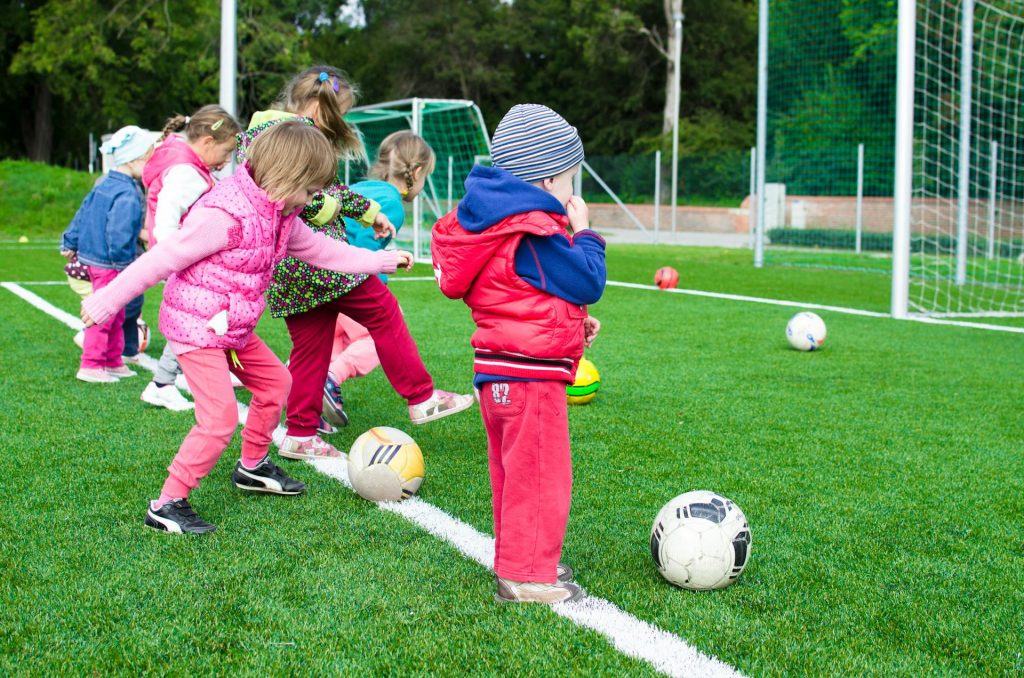Table of Contents
Sports have long been celebrated for their ability to entertain, challenge, and inspire. However, beyond the thrill of competition and the pursuit of victory, sports play a crucial role in building character. Participation in sports fosters a range of personal qualities and life skills that contribute to a well-rounded and resilient individual. This article explores how involvement in sports helps develop character traits such as discipline, teamwork, resilience, and leadership, and why these qualities are essential for personal and professional success.

1. Discipline and Self-Control
One of the fundamental ways sports contribute to character development is through the cultivation of discipline and self-control.
- Routine and Commitment: Sports require a high level of commitment and routine. Athletes must adhere to training schedules, practice regularly, and follow specific guidelines to improve their performance. This commitment fosters discipline as individuals learn to manage their time effectively, set goals, and stay focused on achieving them.
- Overcoming Challenges: In sports, setbacks and failures are inevitable. Whether it’s a missed shot, a lost game, or an injury, athletes must learn to cope with disappointment and continue striving toward their goals. This process of overcoming challenges builds self-control and resilience, teaching individuals to persevere despite obstacles.
- Personal Accountability: The nature of sports requires athletes to take responsibility for their performance and actions. Whether winning or losing, athletes learn to assess their contributions honestly, accept feedback, and make improvements. This accountability extends beyond the playing field, influencing how individuals approach their personal and professional lives.
2. Teamwork and Collaboration
Sports often involve working as part of a team, which is a powerful way to develop teamwork and collaboration skills.
- Effective Communication: Success in team sports relies on clear and effective communication. Athletes must convey strategies, provide support, and coordinate with teammates to achieve common goals. This emphasis on communication fosters strong interpersonal skills and the ability to work harmoniously with others.
- Shared Goals: In team sports, achieving success requires aligning personal goals with those of the team. Athletes learn to prioritize the collective success of the team over individual achievements. This experience teaches the value of collaboration and the importance of working together toward a shared objective.
- Empathy and Support: Team sports provide opportunities to support and encourage teammates, whether during victories or defeats. Athletes learn to understand and empathize with others’ experiences, fostering a sense of camaraderie and mutual respect. This support system helps build strong, trusting relationships within the team.
3. Resilience and Adaptability
Sports are a crucible for developing resilience and adaptability, qualities essential for navigating life’s challenges.
- Handling Adversity: The unpredictability of sports—ranging from unexpected losses to injuries—teaches athletes to handle adversity with grace and determination. Learning to bounce back from setbacks and maintain a positive attitude is crucial for developing resilience.
- Adaptation and Flexibility: Sports often require athletes to adapt to changing conditions, such as varying opponents, game strategies, or environmental factors. This need for adaptability teaches individuals how to remain flexible and adjust their approach in response to new situations or challenges.
- Mental Toughness: The psychological demands of sports, including pressure and stress, help athletes build mental toughness. Developing the ability to stay focused, manage anxiety, and perform under pressure is a valuable skill that translates to various aspects of life.

4. Leadership and Responsibility
Participation in sports can also foster leadership qualities and a sense of responsibility.
- Leading by Example: Athletes often take on leadership roles within their teams, whether as captains or senior players. Leading by example, motivating others, and making strategic decisions help develop leadership skills that can be applied in other areas of life.
- Taking Initiative: In sports, individuals frequently need to take the initiative, whether in training, game situations, or team dynamics. This proactive approach fosters a sense of responsibility and the ability to take charge when necessary.
- Decision-Making: Sports require quick and strategic decision-making. Athletes learn to assess situations, weigh options, and make decisions under pressure, which enhances their problem-solving and decision-making skills.
5. Ethical Values and Sportsmanship
Sports provide a framework for instilling ethical values and promoting sportsmanship.
- Fair Play: The principle of fair play is central to sportsmanship. Athletes are encouraged to compete honestly, respect the rules, and uphold integrity. This emphasis on fairness fosters ethical behavior and a commitment to doing what is right, both on and off the field.
- Respect for Others: Sports teach individuals to respect opponents, officials, and teammates. Understanding the value of respecting others, regardless of the outcome, helps build character and promotes positive social interactions.
- Handling Success and Failure: How athletes handle success and failure is a key aspect of sportsmanship. Learning to celebrate victories with humility and accept defeats gracefully helps develop a balanced perspective and a mature attitude toward competition.
6. Community and Social Connection
Sports also play a role in fostering community and social connections, which are vital for personal growth.
- Building Relationships: Participating in sports provides opportunities to connect with others who share similar interests and goals. These relationships can lead to lasting friendships and a sense of belonging within a community.
- Encouraging Inclusion: Sports often bring together individuals from diverse backgrounds, promoting inclusion and understanding. This diversity enriches the sporting experience and helps build social cohesion.
- Community Engagement: Many sports activities involve community events, fundraisers, and local competitions. Engaging in these activities fosters a sense of community involvement and the importance of contributing to the greater good.

7. Conclusion
The role of sports in building character is profound and multifaceted. Through discipline, teamwork, resilience, leadership, and ethical values, sports help individuals develop qualities that are essential for personal and professional success. By fostering these traits, sports contribute to the growth of well-rounded, responsible, and empathetic individuals. Whether through competitive play or recreational activities, the lessons learned in sports can have a lasting impact, shaping individuals who are not only skilled athletes but also capable, confident, and character-driven members of society.
